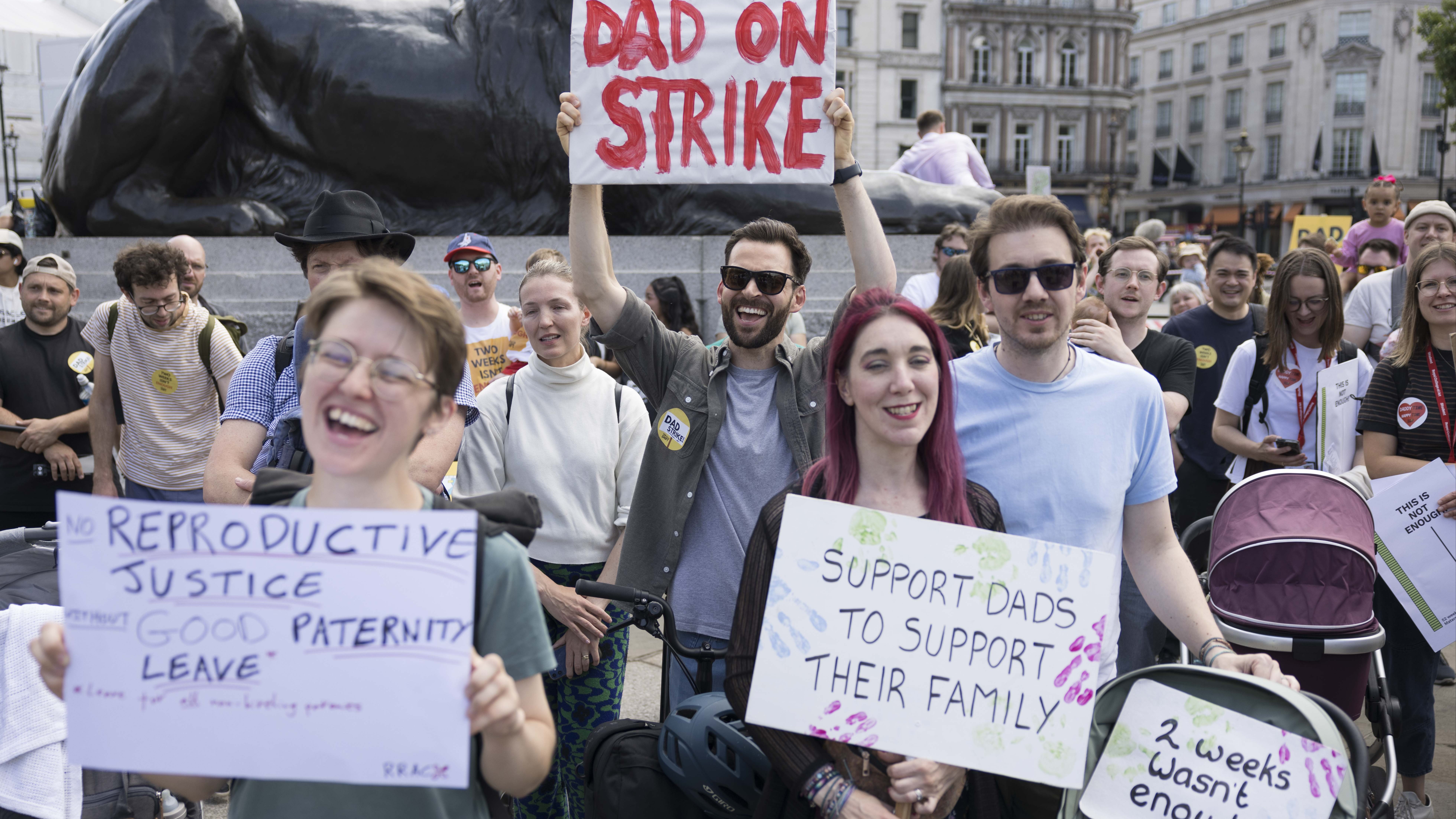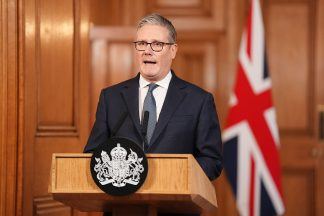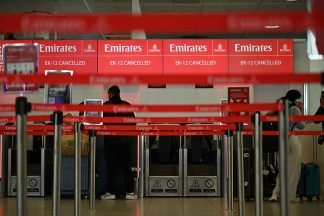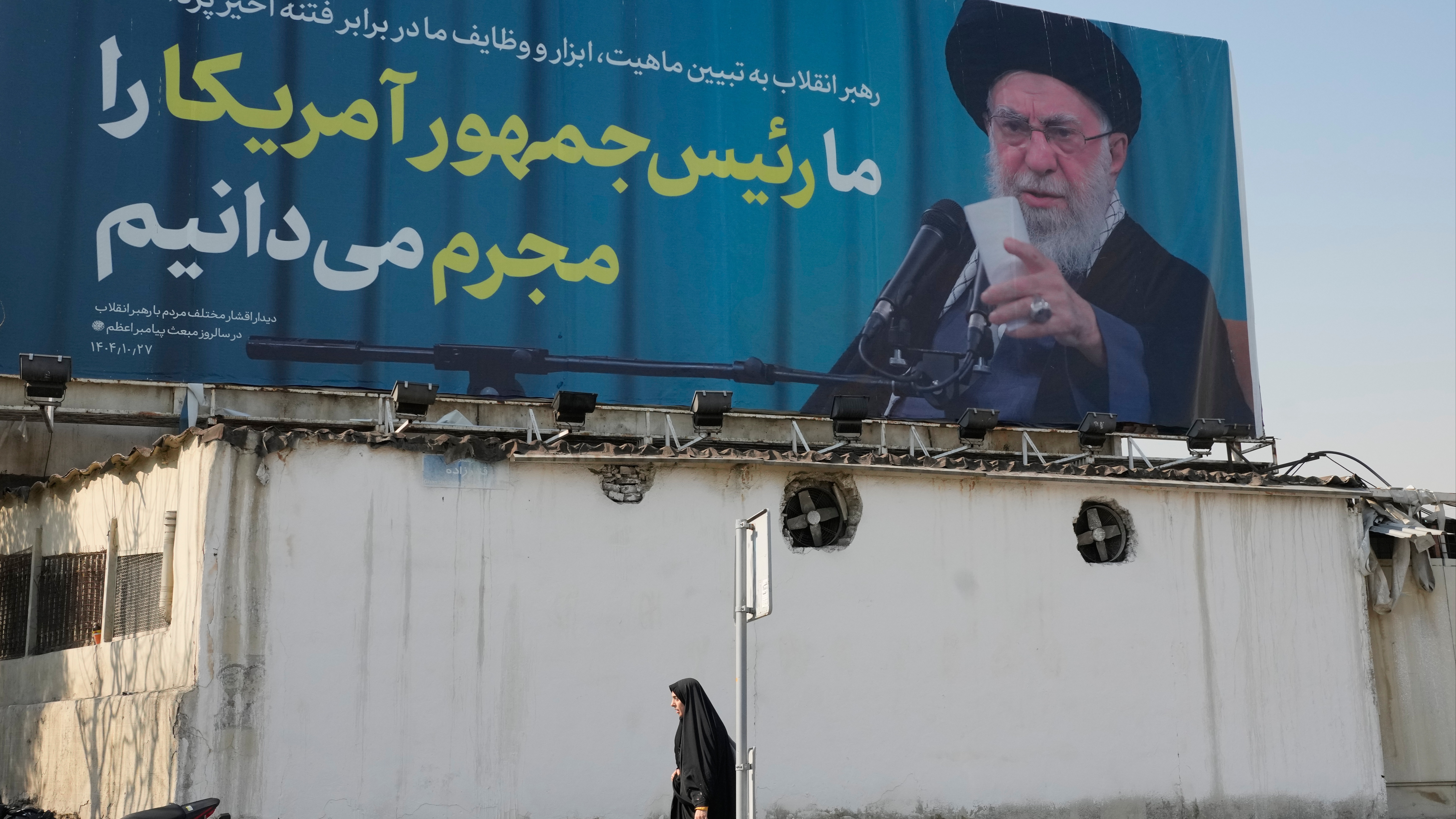The UK has the worst statutory paternity leave in Europe, and it’s putting parents off having more children, a survey shared with ITV News has found.
British fathers are entitled to just two weeks off work after their child is born and are paid a maximum of £187.18 a week – less than minimum wage.
It’s the least generous scheme in Europe, according to the Joseph Rowntree Foundation, and one of the worst of the world’s richest countries.
Have your say
Have you been impacted by these events? Tell us your story.
In Spain, dads get 16 weeks off work on full pay, while in Sweden, they get 34 weeks off on up to 80% of their normal salary.
Campaigners say the family can benefit hugely from staying together for longer during those early weeks. Fathers can spend more time bonding with the baby and supporting the mother after the life-changing, sometimes traumatic experience of childbirth.
Mother Kerry Whiteway told ITV News how she was diagnosed with PTSD and postnatal depression after giving birth to her daughter.
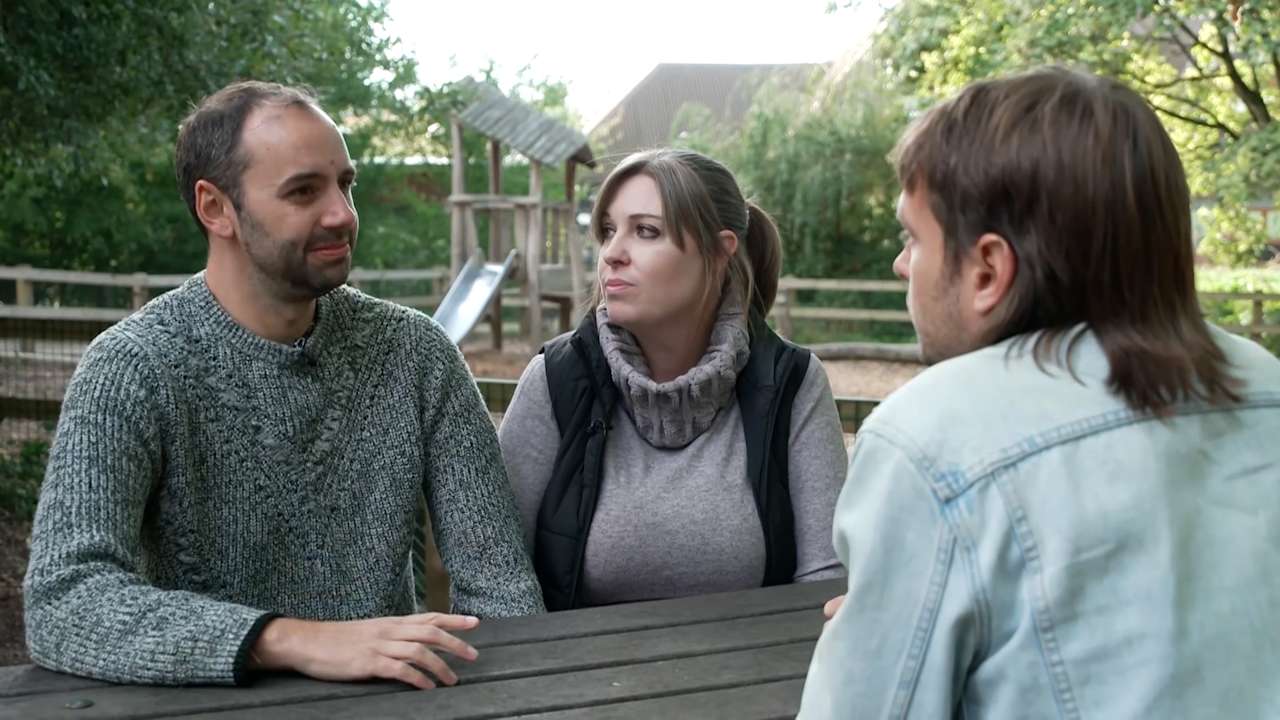
“Things went from a very calm and happy moment of new parents holding our newborn baby to there being an issue, and suddenly I’m having to be whisked off into theatre, taken away from my husband and my newborn child.
“When we returned home, I wasn’t feeling like I should do as a new mum, and they diagnosed me with postnatal depression. The thing I needed and wanted most in that time was my husband.”
Her partner, Dan, used his two weeks’ statutory paternity pay and an additional two weeks of annual leave to support her, but after those four weeks was forced to return to work.
“You feel as if you’re not doing either job well if you keep messing up both sides of it. That’s the kind of mental load it gets thrown on you. You can’t help but feel stretched and feel like you’re not doing either thing properly.
“You’re not contributing at home enough. You need to financially contribute to keep your family afloat.”
Research suggests there can be huge benefits for the child, mother and father if that family unit can bond unimpeded for longer periods of time after childbirth.
George Gabriel, co-founder of the Dad Shift campaign group, said: “The European average is dads and non-birthing parents get eight weeks at 100% of earnings. We think in the UK – you know, obviously it’s a challenging moment for the country – but six weeks at 90% of earnings would be a real start.”
He added: “That would mean most dads get a chance to really be there for their partners, really be there for their kids and bond with their babies and those important early weeks.”
A survey commissioned by The Dad Shift and the Movember charity and shared exclusively with ITV News found that 57% of dads are reluctant to have more children because of the financial difficulties they faced after first becoming a parent.
That could be a problem, because the UK currently has its lowest birthrate on record and an ageing population, which means more workers are needed to support a growing number of pensioners.
The UK is far from alone with its low birthrate, but other countries have enacted policies designed to encourage people to have more children.
South Korea, the country with the world’s lowest birth rate, has spent more than £200 billion in the past 16 years trying to urge its citizens to have more children.
The Dad Shift – which organised what it described as the “world’s first dads strike” this summer – says improving the UK’s paternity leave could be an easy way to encourage bigger families.
Protesting dads attended what they described as the ‘world’s first dad strike’ this summer
Education Secretary Bridget Phillipson has expressed her worries about the UK’s falling birth rate.
She told the Daily Telegraph falling birth rates were not only a concerning trend but one which “tells a story, heartbreakingly, about the dashed dreams of many families”.
Official data from the Office for National Statistics shows fertility rates in England and Wales dropped to 1.44 children per woman in 2023, the lowest level since records began in 1938.
Ms Phillipson said people were scared off having children due to the high costs, and wanted “more young people to have children, if they so choose”.
It’s a problem affecting mostly lower-income families. High earners are more likely to be able to afford a temporary pay cut or work for one of the few companies that offer enhanced support.
In 2015, a scheme where two parents could split 50 weeks of shared parental leave was introduced, but just 5% of fathers take it.
Labour’s Luke Charters became the first MP to take an extended paternity leave by employing a stand-in following the birth of his second child after the experience of his first.
Labour MP Luke Charters says ‘toxic influencers’ like Andrew Tate make being a present dad even more important
He told ITV News: “We’ve got this world of toxic influencers like bottom-feeder, I call him, Andrew Tate. And for dads in particular, to be there as role models for their sons and daughters, it’s more important than ever.
“So that’s why I protected that time. Even as a busy MP and I’ve always said I’m a dad first, I’m an MP second.”
He added: “What the research shows is that productivity increases for parents when they go back to work again in those skills as a parent, and it increases your mental health, your wellbeing, and resilience as well. So there’s an economic benefit to the wider economy.
“There’s a benefit to business ability, but importantly, there’s a benefit to the mental health of the parents as well.”
The government is currently looking into paternity leave in the UK after opening a review, which is expected to be published later this year.
The Women and Equalities Committee (WEC) said the review will let down working families if it “tinkers at the edges”.
A report by the committee said the UK has “one of the worst leave offers in the developed world for fathers and other parents”, adding that a maximum of two weeks’ paternity leave is “completely out of step with how most couples want to share their parenting responsibilities” and “entrenches outdated gender stereotypes about caring”.
The government told the committee it knew that the parental leave system needed improvement, adding that a start had been made, including making paternity and unpaid parental leave a “day one” right under the Employment Rights Bill.
It said: “However, the government recognises that more can be done. In the Plan to Make Work Pay, the government committed to a review of the parental leave system.
“The review presents a much-needed opportunity to consider our approach to the system of parental leave and pay. All current and upcoming parental leave and pay entitlements will be in scope.”
When launching the review, Keir Starmer accepted that the current system is unfair.
“I know how hard it is for new parents juggling childcare and work,” he wrote on social media.
“Right now, one in three dads don’t take paternity leave because they can’t afford it — that’s just not fair. My government is launching a full review of our parental leave system to deliver for all working parents.”
But new work and pensions secretary Pat McFadden, whose department is running the review along with the department for business and trade, appeared cautious.
He told ITV News that the UK has a “good system of support for families” and any benefit changes “have to be affordable”.
He added: Anything that is more generous has to be paid for. It has to be considered alongside other priorities, like the NHS, like defence, like everything else.
“So I’m sure there’s a good case to be made. But all of these things are choices and priorities and just have to be considered with budget making in the around.”
Have your say
Have you been impacted by these events? Tell us your story.
Follow STV News on WhatsApp
Scan the QR code on your mobile device for all the latest news from around the country


